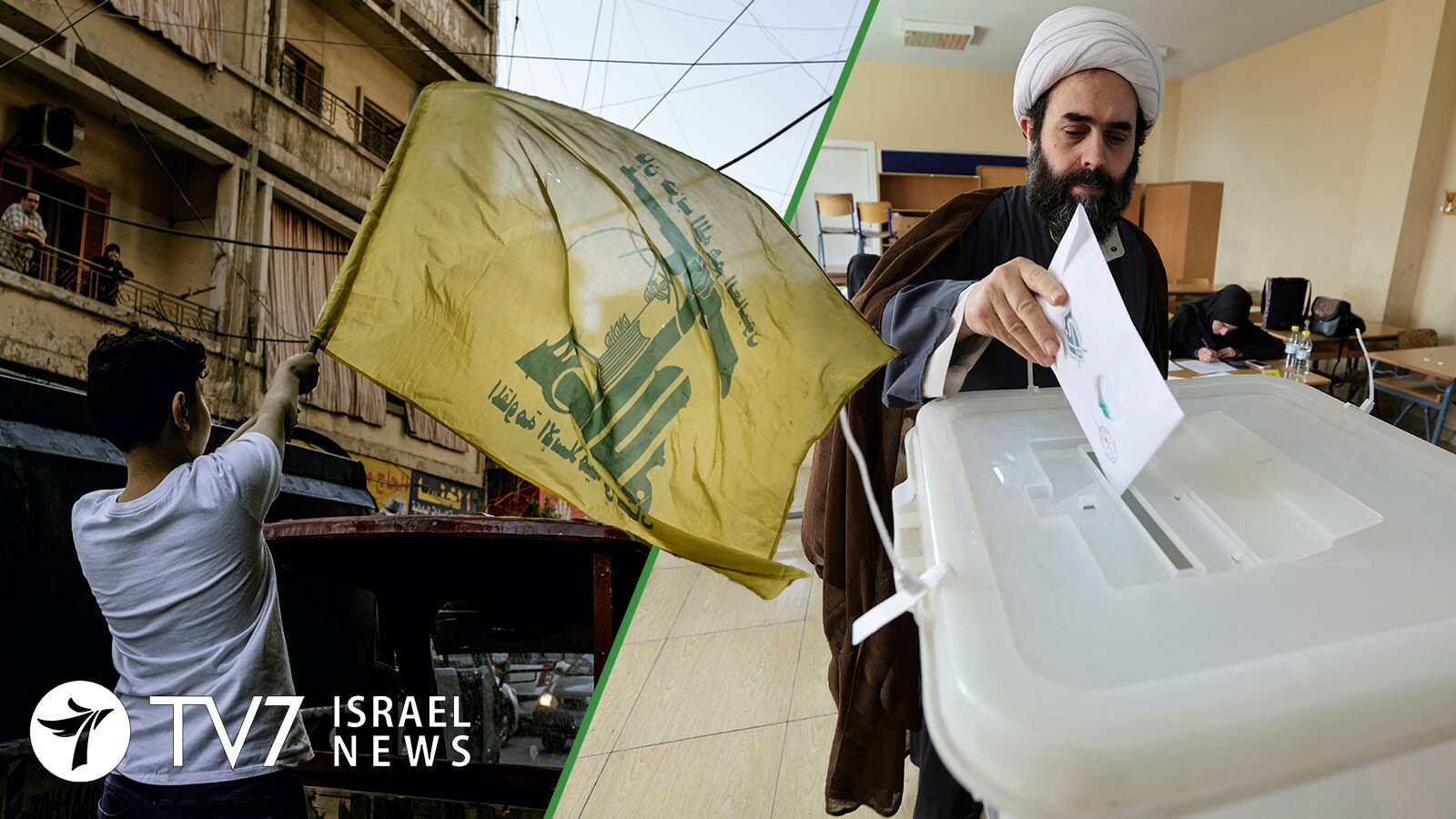The powerful Iran-backed terror group and the Shi’ite Muslim movement at large unexpectedly suffered a major blow, according to final results of Sunday’s election.
By Erin Viner
The Shi’ite Muslim movement and factions that support Hezbollah garnered some 62 of parliament’s 128 seats, in a reversal of the 2018 result when they won a majority of 71.
And while Hezbollah and its Amal Movement ally maintained control of the 27 Shi’ite-allocated seats, they lost two seats in their traditional stronghold of southern Lebanon.
The Hezbollah-linked Free Patriotic Movement (FPM), the largest Christian party in parliament since 2005 founded by President Michel Aoun, managed to hold its 18 mandates.
Hezbollah opponents, the Saudi-aligned Christian Lebanese Forces (LF) faction, rose from 15 to 19 seats.
Sunni representation appeared split between allies and opponents of Hezbollah, amid low turnout for a sect once dominated by leading politician and former premier Saad al-Hariri, who lost Saudi backing in recent years. Hariri‘s recent withdrawal from the political scene splintered Sunni leadership and discouraged many would-be voters from casting ballots.
The diminished representation by Hezbollah would deliver a “major blow” to Hezbollah’s claim of having cross-sectarian support for its powerful arsenal, Mohanad Hage Ali of the Carnegie Middle East Center told Reuters.
Losses for the pro-Iran coalition – combined with unexpected wins for newcomer candidates against other establishment parties – could lead to political deadlock and exacerbate tensions, risking further delays to reforms addressing Lebanon’s crippling economic crisis.
Nearly a dozen mandates went to reformist-minded political newcomers who unpredictably achieved a strong inroad into a system long dominated by the same parties.
Unexpected upsets included the failure of several notable MPs to return to parliament. Sunni Muslim politician Faisal Karami, the heir of another Lebanese political powerhouse, was also ousted from his seat in the country’s second largest city of Tripoli. Hezbollah-allied politician Talal Arslan, a scion of one of Lebanon’s oldest Druze political dynasties who was first elected in 1992, was defeated by newcomer Mark Daou. Independent candidate Elias Jradi won an Orthodox Christian seat from Assaad Hardan, a pro-Syria member of parliament in Hezbollah’s traditional southern Lebanon stronghold. Top Hezbollah ally and Deputy Parliamentary Speaker Elie Ferzli, 72, lost the Christian Orthodox seat in West Beqaa to a candidate backed by Druze leader Walid Jumblatt, whose own list also lost a Sunni seat to independent candidate Yassin Yassin.
“After two-and-a-half years of directly facing off in the streets against a government of injustice, finally, we’ve begun the journey to change in Lebanon. This is a national celebration!” Yassin was cited by Reuters as saying.
128 members of parliament (MPs) are elected to a four-year term in accordance with Lebanon’s political system of “confessionalism,” with 50%of the seats apportioned to Muslims and the other half reserved for Christian representatives.
The results are widely viewed as a reflection of public anger at Beirut’s ruling elite, in the first general election to be held since Lebanon’s devastating economic collapse and the 2020 Beirut port explosion. In what the World Bank has described as one of the worst economic crises since the Industrial Revolution, the local currency has lost more than 90% of its value, including around a 10% drop just since Sunday’s election.
The lack of a clear majority by any of the factions leaves the parliament divided – increase prospects of a continuation of the political paralysis that has long plagued the country as internal conflicts may further delay badly-needed reform to exit its severe financial melt-down.
“Fragmentation has increased in the parliament, and this makes the process of legislation and forming majorities difficult,” FPM leader Gebran Bassil remarked at a press conference, while urging the newcomers to collaborate with his faction.
Any delay may further postpone reforms required by the International Monetary Fund and donor nations.
Jamil al-Sayyed, an MP close to Hezbollah who retained his seat, told Reuters the result would lead to an increasingly dysfunctional political system. Any failure to pull together a parliamentary majority raised the specter of “social implosion or civil war, unless foreign powers intervene,” said Sayyed.
The next parliament is tasked with the election of a new speaker, nomination of a prime minister to form a cabinet and election of the next president in place of Aoun, whose term ends later this year on 31 October.
While results of the 2018 election bolstered Iran’s influence over the Arab Republic, the latest outcome could pave an avenue for Tehran’s arch-regional Riyadh to reassert its own presence. Sunni Muslim Saudi Arabia and Shi’ite Iran have long vied against one another to bring Lebanon into their own political spheres, and Saudi leaders have increasingly bristled against the rising role of the heavily-armed Hezbollah.
Saudi Ambassador to Lebanon Waleed al Bukhari could not resist a veiled critique of Hezbollah after it lost its parliamentary majority. Without specifically mentioning the terror organization by name, the envoy wrote in a post on Twitter that the electoral outcome “proves the inevitability that the logic of the state will win against the absurd excesses of the statelet disrupting political life and stability in Lebanon.”
Other international reactions included a call from United Nations Secretary General Antonio Guterres for the swift formation of an inclusive government to stabilize the economy.
In a preliminary statement on Tuesday, in fact, the European Union Election Observation Mission said the poll had been “overshadowed by widespread practices of vote-buying, clientelism and corruption.” Ahead of the election, electoral monitors expressed fear that there could be a rise in vote-buying due to the plunging of an estimated three-quarters of the population into poverty by Lebanon’s financial decline. The impoverished Sunni-majority Tripoli registered the lowest voter turnout, were former Hariri associate Mustafa Alloush ran unsuccessfully as an independent, said families who waited for electoral bribes that never came.
Iran reacted with a statement that it respected the vote and insisted it has never intervened in Lebanon’s internal affairs.
